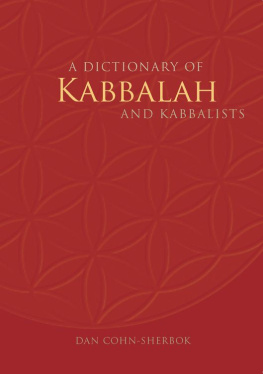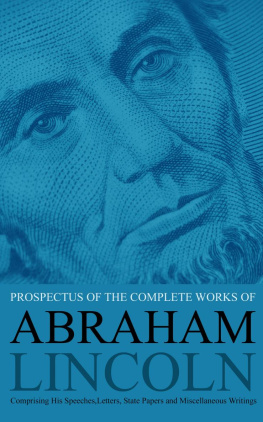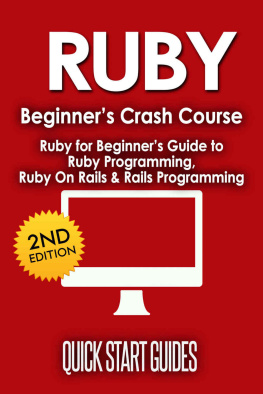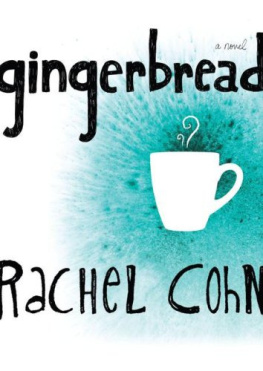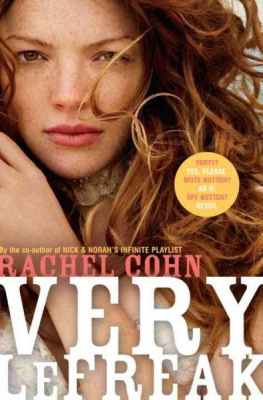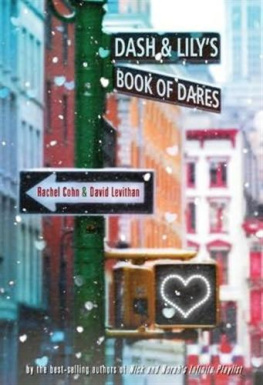Cohn Ruby - Disjecta : miscellaneous writings and a dramatic fragment
Here you can read online Cohn Ruby - Disjecta : miscellaneous writings and a dramatic fragment full text of the book (entire story) in english for free. Download pdf and epub, get meaning, cover and reviews about this ebook. City: New York, year: 1984, publisher: Grove Press, genre: Detective and thriller. Description of the work, (preface) as well as reviews are available. Best literature library LitArk.com created for fans of good reading and offers a wide selection of genres:
Romance novel
Science fiction
Adventure
Detective
Science
History
Home and family
Prose
Art
Politics
Computer
Non-fiction
Religion
Business
Children
Humor
Choose a favorite category and find really read worthwhile books. Enjoy immersion in the world of imagination, feel the emotions of the characters or learn something new for yourself, make an fascinating discovery.

- Book:Disjecta : miscellaneous writings and a dramatic fragment
- Author:
- Publisher:Grove Press
- Genre:
- Year:1984
- City:New York
- Rating:5 / 5
- Favourites:Add to favourites
- Your mark:
- 100
- 1
- 2
- 3
- 4
- 5
Disjecta : miscellaneous writings and a dramatic fragment: summary, description and annotation
We offer to read an annotation, description, summary or preface (depends on what the author of the book "Disjecta : miscellaneous writings and a dramatic fragment" wrote himself). If you haven't found the necessary information about the book — write in the comments, we will try to find it.
Cohn Ruby: author's other books
Who wrote Disjecta : miscellaneous writings and a dramatic fragment? Find out the surname, the name of the author of the book and a list of all author's works by series.
Disjecta : miscellaneous writings and a dramatic fragment — read online for free the complete book (whole text) full work
Below is the text of the book, divided by pages. System saving the place of the last page read, allows you to conveniently read the book "Disjecta : miscellaneous writings and a dramatic fragment" online for free, without having to search again every time where you left off. Put a bookmark, and you can go to the page where you finished reading at any time.
Font size:
Interval:
Bookmark:
Miscellaneous Writings and a Dramatic Fragment
by
Samuel Beckett
Edited with a foreword by Ruby Cobn

Copyright 1984 by Grove Press, Inc.
All rights reserved. No part of this book may be reproduced in any form or by any electronic or mechanical means, including information storage and retrieval systems, without permission in writing from the publisher, except by a reviewer, who may quote brief passages in a review. Scanning, uploading, and electronic distribution of this book or the facilitation of such without the permission of the publisher is prohibited. Please purchase only authorized electronic editions, and do not participate in or encourage electronic piracy of copyrighted materials. Your support of the authors rights is appreciated. Any member of educational institutions wishing to photocopy part or all of the work for classroom use, or anthology, should send inquiries to Grove/Atlantic, Inc., 841 Broadway, New York, NY 10003 or permissions@groveatlantic.com.
Library of Congress Catalog Card Number: 83-48309
eBook ISBN-13: 978-0-8021-9842-6
Printed in the United States of America
Grove Press
an imprint of Grove/Atlantic, Inc.
841 Broadway
New York, NY 10003
Distributed by Publishers Group West
www.groveatlantic.com
Disjecta is Becketts own title for this miscellany of criticism and a dramatic fragment. Unpublished or published obscurely, these pieces have been available only in a few fortunate libraries. It is in generosity to scholarson the special plea of Dr James Acheson that Samuel Beckett now permits the publication of material which he belittles as mere products of friendly obligation or economic need. Since the volume is compiled for scholars who read several languages, Beckett stipulates that these bits and pieces be printed in the language of composition.
Like other scholars familiar with Becketts criticism, I value it more than its author does. Like other scholars, too, I believe that the miscellany harbors an esthetic, but Becketts criticism nevertheless resists a Procrustean coherence. Beckett himself observes (on Feuillerats ordering of Proust): a beautiful unity of tone and treatment would have, as it were, embalmed the whole. To avoid embalming the whole, we should savor Becketts morsels in all their variety.
Although Beckett does not swerve from commitment to an art of questions, hesitations, explorations its theory and practice his expression erupts in provocative articles, disdainful reviews, reflective essays, searching letters, and rare lyrical homage. To invite continuous reading, I have grouped the material by subject: 1) more or less formal esthetics, 2) literary criticism, 3) art criticism. By way of introduction, however, I prefer to move in stricter chronology: 1) Becketts early mannered but nevertheless discerning perceptions; 2) commissions for periodical publication; 3) explicit exploration of the artists calling; 4) postwar art criticism; 5) published commentary on his own work.
* * *
Today we are not surprised that Beckett was drawn to two modern giants, Joyce and Proust, but they did not tower so high in the late 1920s, and Becketts essays were lucky assignments. In 1928, when he left Dublin as an exchange student to Paris, Beckett met a Joyce who was anxious to publicize Work in Progress by a volume of laudatory essays. Since Beckett had studied Italian, and particularly Dante, at Trinity College, Joyce proposed that the 22-year old student trace Works debt to the Italian trinity of Dante, Bruno, and Vico. Obligingly, Beckett read Vicos Scienza Nuova, which he then analyzed so acutely that, decades later, he is cited in Vico bibliographies. More strikingly original are the parallels Beckett draws between Dante and Joyce unlikely to be cited in Dante bibliographies.
Of particular relevance in the context of this volume is Becketts much quoted declaration: Literary criticism is not book-keeping, and he proceeds to prove that Samuel Becketts literary criticism is closer to dart-shooting (against Benedetto Croce on Vico and against all philistines on Joyce). But Beckett could also register admiration, and he praises Vicos concern with myth, language, and poetry in his new science. Although Beckett dutifully points to the importance of Viconian structure in Work in Progress, his primary enthusiasm is language as form and content. And it is by language that Beckett yokes Joyce to Dante, for he contends that they both invented a distinctive ideolect, spoken by no one. However, Beckett closes Dante Bruno. Vico Joyce on metaphysics rather than language, and on contrast rather than resemblance. Unlike Dante, Becketts Joyce views this earth as Purgatory, and any two opposing principles can make the purgatorial world go round. Becketts Joyce thus erects an esthetic structure on the ancient framework of religious ethics. The new closed system is amoral and arbitrary.
Young Becketts rapport with Proust was less personal and more profound. Dead in 1922, when Beckett was 16, Proust was little read at the beginning of the socially conscious 1930s. Beckett himself had only dipped into Proust before receiving a contract from an English publisher. After two Paris years as lecteur at the prestigious Ecole Normale Suprieure two years spent in a more Bohemian than academic fashion Beckett devoted the summer of 1930 to careful perusal of A la recherche du temps perdu. His detailed analysis of themes and texture still serves the Proust tyro, and his translations of key passages improve on the Scott Moncrieff version of 1922. Although Beckett dislikes the monograph and will not permit its translation into French, Proust was a modest success, both critically and commercially.
Subduing the polemical tone of the Joyce essay, the budding scholar refers in Proust to such tried and true critical pigeonholes as Romanticism, Symbolism, Relativism, Impressionism all resistant to Realism, the dominant mode of the period. Beckett never explicitly compares Proust to Joyce, but he approves of both writers for fusing form and content. The admiring Joyce disciple assumes critical distance from Proust who is called the garrulous old dowager of the letters who can repeat himself ad nauseam. As the monograph proceeds, however, Becketts appreciation grows for an author with whom he shares fundamental tenets primacy of instinctive perception, style as vision more than technique, an art that is perfectly intelligible and perfectly inexplicable. It is, however, a minor note in Proust that will become Becktts major critical chord the mobile subject before an evanescent object.
Less than half the Joyce essay focuses on Joyce, but the whole Proust monograph is centered on Proust. Becketts erudition is less obstreperous proper names, artistic movements, untranslated Spanish and Italian. Many pages look as though the paragraph had never been invented. Proust has been called portentous, but the prose can be defended as Beckett himself defended Proust: The complaint that it is an involved style, full of periphrasis, obscure and impossible to follow, has no foundation whatsoever. Beckett respects academic form by occasional footnotes, but he refers to no earlier Proust critics, and he throws unscholarly darts at such contemporaries as Cocteau, France, Gide. Becketts Proust nevertheless fits the academic mould more snugly than he himself could do, once he returned to Dublin to teach at Trinity College.
It was probably at this time that he played a trick on the Moden Language Society of Dublin the kind of trick that Parisians would recognize as a
Font size:
Interval:
Bookmark:
Similar books «Disjecta : miscellaneous writings and a dramatic fragment»
Look at similar books to Disjecta : miscellaneous writings and a dramatic fragment. We have selected literature similar in name and meaning in the hope of providing readers with more options to find new, interesting, not yet read works.
Discussion, reviews of the book Disjecta : miscellaneous writings and a dramatic fragment and just readers' own opinions. Leave your comments, write what you think about the work, its meaning or the main characters. Specify what exactly you liked and what you didn't like, and why you think so.

